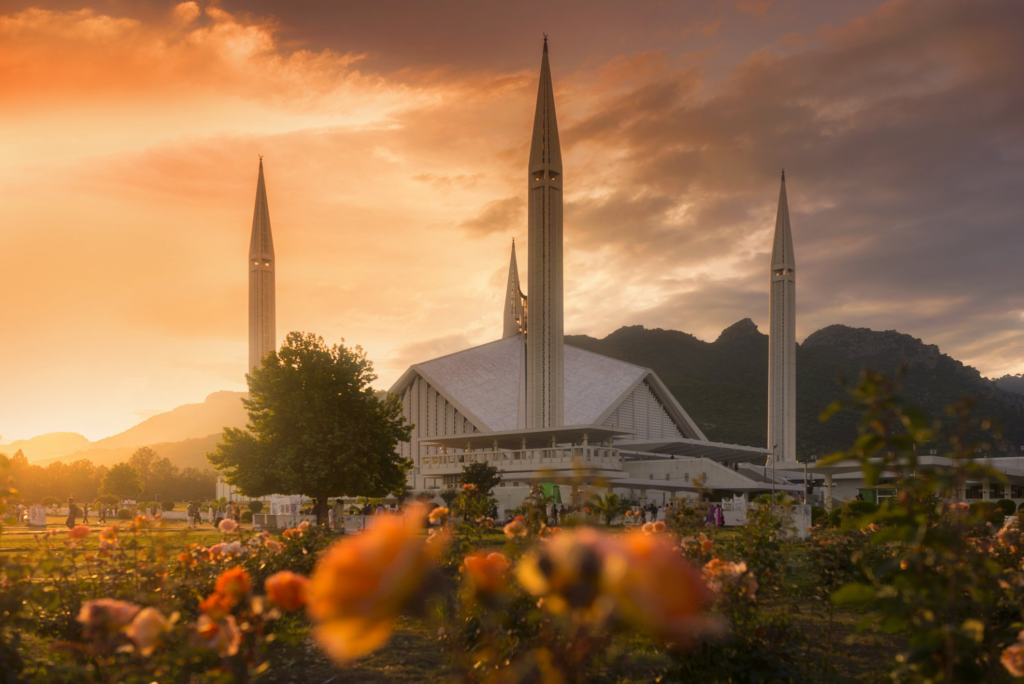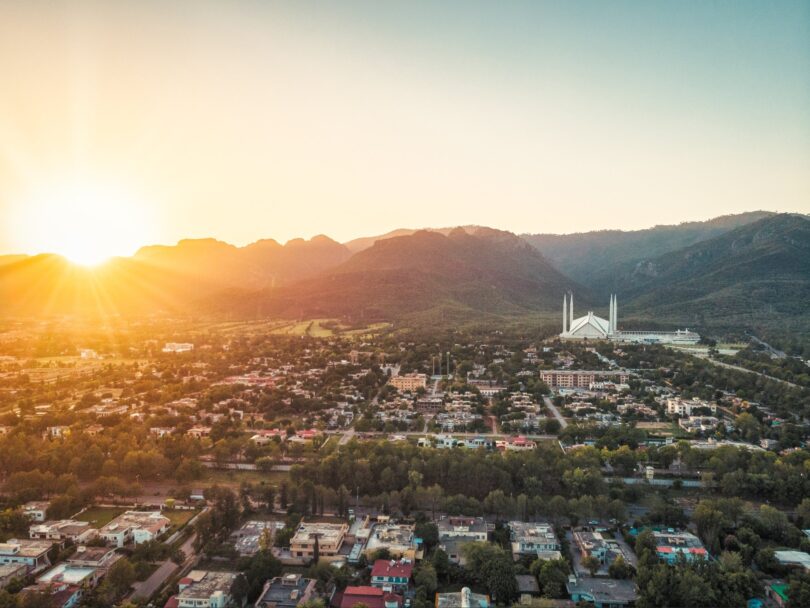Irfan Raja
ISLAMABAD : As the Wizz Airplane touched down on the Islamabad International Airport runway, I felt as though I had kissed the soil. How does it feel when you come back to your homeland as a visitor?
There is always the initial rush of being greeted by close family members and friends who come to pick you up. Normally, my close friend Amjad Khan or my nephews Abdullah and Haroon receive me at the airport.
Since I became a British citizen, I have paid a visit to Pakistan during the winter and summer holidays. That’s probably the best way to make holidays holy by spending quality time with loved ones. A mother’s hug relieves all pains and suffering, doesn’t it?
One aspect of the encounters may be to recall shared memories of pastimes with family and friends. Often, I revisit the balance sheet of losses and gains.
Time flies and life goes on like the melting of an iceberg. So, let’s make the most of it.
Motorway to Hasanabdal
We traveled on a motorway toward Hasanabdal, my native village, and the Sikh community religious place known as Gurdwara Sri-Punja Sahib. Each year, Sikh pilgrims come to celebrate Vaisakhi, or Baisakhi (celebrations featuring a spring harvest season in Punjab, the land of five rivers), and to mark the martyrs of four sons of Sikh Guru Gobind Singh in April and December, a time to remember, recollect and for reverence.
A glaring addition across the motorway is brand-new housing developments that are potentially opening up new business opportunities. The Islamabad-Peshawar motorway segment was constructed by Türkiye’s Bayinder, an existing example of Pak-Turk friendship. A direct journey to home sweet home takes 40 minutes unless one stops at rest areas on a motorway designated to offer you comfort and luxury while traveling.
On the way, I stopped at my brother-in-law Mian Adnan’s farmhouse for a traditional lunch, a rice dish called biryani, kofta and kebab, and topped it off with the pudding kheer. It is best Islamic practice to rest after lunch to perform a midday prayer and partake in a brief nap, known as a Siesta, a tradition of the Islamic period still popular in Spain.
An hour later, I woke up fresh and visited with everyone in the farmhouse. Next, I drove to Hasanabdal to see my mum, a person who patiently waits and never asks for anything except a hug, every mum’s nature. A universal constant and a standard model reserved for mothers.

Ancestral traditions to modern-day doings
Knowing that I was on a brief trip, she planned my favorite lunches, meals and even meetings in the town. Traditional practices require everyone who comes home a few times a year to pay visits to elderly relatives and especially families of departed souls to offer condolences.
Being a member of the Karluk Turkish tribe, we have preserved centuries-old traditions from greetings to expressing and sharing sorrows. I hold a firm belief that blood matters when people express themselves, they show family traditions through gestures and manners.
Most evenings, I sit down with my mother to listen to her tales of pastimes beginning with Raja Azhar Mehmood Khan and his endeavors for orphans and vulnerable people who still cherish his memories, including the living gift of Al-Mehmood Mosque.
I could summon back my parents’ generation as “old times were good times.” My mother proudly mentioned her beloved brothers Dr. Inayatullah and Attaullah and intrepid cousin brothers Zaildar (landlords) Chaudhary Zamurrad Khan, Mushtaq Khan and Lala Nisar Ahmed. Such tales are mementos for us all, in line with the proverb, “We meet to create memories, and we depart to preserve them.”
Today’s young generation is living isolated lives driven by the virtual world. Is this modernity? I think differently and mourn the fading practices, particularly the family gathering at lunch and dinners.
Thankfully, I have kept these strong traditions and even admire afternoon tea with rusks and crispy tandoor roti with traditionally made tea. In Hasanabdal, Rajput have maintained their Baitkhs or Hujras (guesthouse) tradition since the times of their leader, Raja Kala Khan.
One of the traditions demands immediate family and close friends to invite visiting people to lunch and dinners; however, unfortunately, with the rising cost of living, the tradition is now on the decline.
Banquets, get-togethers in Islamabad
Given the short break and enduring feeling of homesickness, my buddies Amjad Khan and Shahid Khan understood it was time for a friend gathering. Islamabad is rich in festive places, especially its suburbs on the Margalla Hills, making it a globally distinguished capital.
Shahid organized a barbeque at the Capital Development Authority (CDA) guest house located in Margalla Hills. There are plenty of restaurants of all sorts offering continental cuisines from street food to traditional and Turkish on the hilltop.
Once a year, Shahid who owns a virtual business, treats his employees and coincidentally, this time also me as a guest.
To utilize time, I spent a few hours before the lunch meeting with the chief of the Turk tribe, Raja Iftikhar Khan, and the chief of the Ghakhar tribe Raja Sheraz Haider Zaman. Indeed, good friends are also active medicine when you are feeling low.
The guest house’s ideal location offers incredible sightseeing, including the nearby Chattar Park and King Faisal Mosque adjacent to the International Islamic University, as well as the best trails in Islamabad.
Climbing up to explore Margalla Hills’ natural beauty, one can’t ignore talkative and friendly monkeys but one must always be cautious, sometimes they misbehave.
While cooking on modern burners, I recall my village and the way we gather dry wood to cook meals on the bank of a river under the shadow of a mountain. Those few hours of preparing and eating food together are stuck in my memory forever. We enjoyed masala fish, chicken curry, kebabs and sweet dishes.
No matter what you have going on in your life, if you are emotionally strained, the best option is to spend time with family and friends, and if nature is your companion, that is a blessing.
Courtesy: Dailysabah







